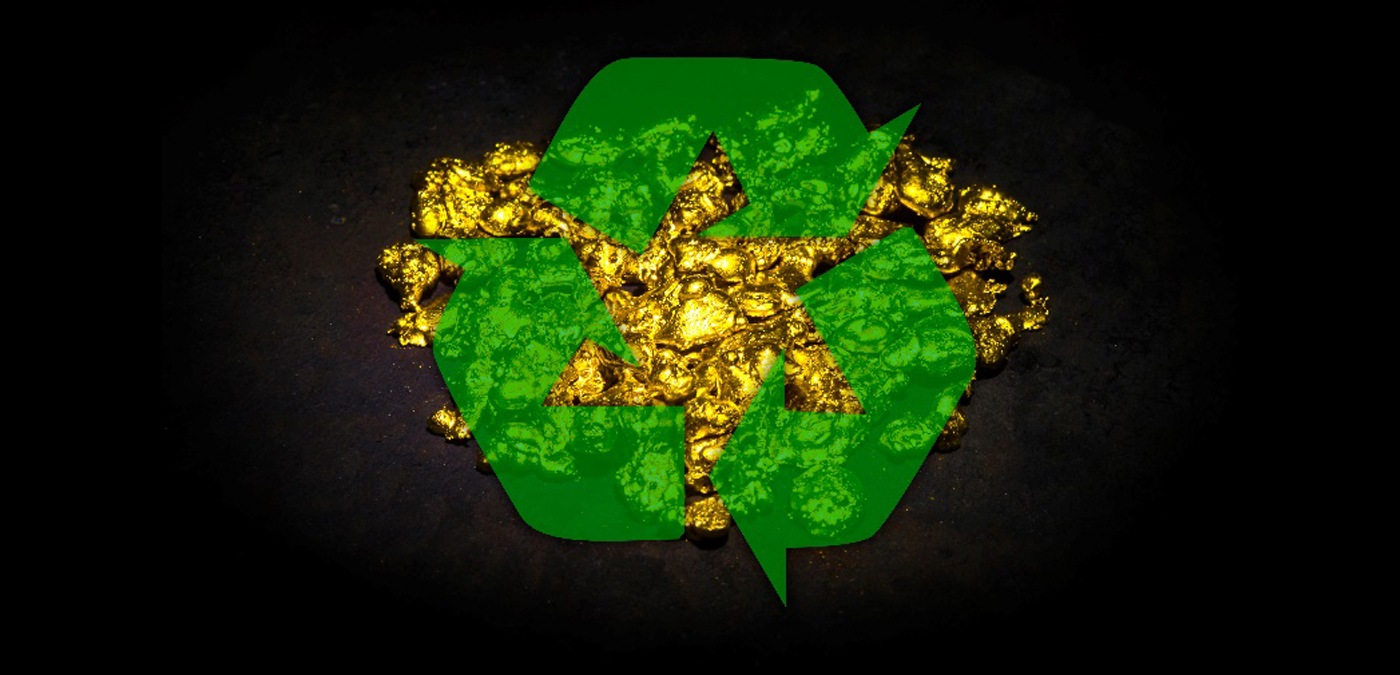In recent years, due largely in part to the push for environmental sustainability, the demand for recycled gold has been increasing among jewelry designers, manufacturers and retailers. With growing interest in 100% recycled gold, metals companies have changed their practices to now supply customers with gold from recycled sources such as jewelry manufacturing by-products such as sweeps and polishing dust, as well as from jewelry scrap. However, due to the recent gold rush of 2020 among other factors, the supply of recycled material seems to be diminishing as less and less scrap gold is being purchased by local retail shops.
The jewelry industry has never been eager to accept change or adapt to market influences. Driven more by trends and the need for expediency when it comes to manufacturing, the current drive for recycled gold is getting more traction than previous industry changes. So why the push for 100% recycled gold?
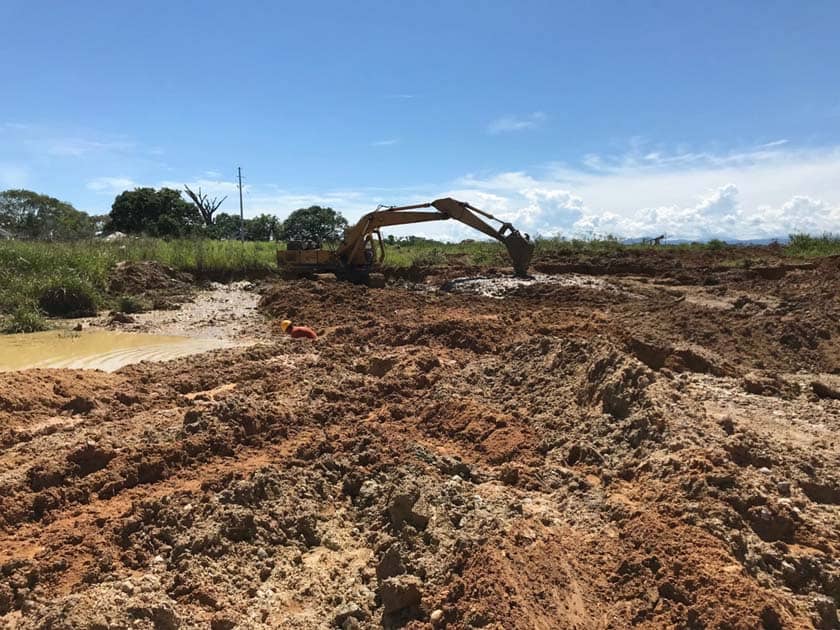
Effects On The Environment
One of the greatest downfalls of mining is the environmental impact on the area. When it comes to mining for precious metals, the process often requires drilling or digging deep into the ground as well as the use of explosives and harmful chemicals. The terrain that is affected by mining takes decades to recover and often times are left desolate and barren, with no attempts made to remedy the disrupted landscape.
Some mining companies have made an effort to esthetically improve the footprint left behind after mining specific areas. Select companies in the Amazon region of South America plant trees that are able to grow in these conditions such as Hevea brasiliensis – the tree from which rubber is extracted. The trees thrive in disturbed areas which is why mining companies in countries like Brazil, Venezuela, Ecuador, Colombia, Peru and Bolivia use them to try and replenish the areas they have mined.
In Bolivia, the impact on water sources has been severe. The Poopó and Uru Uru lakes, part of the Lake Titicaca water system, dried up completely in 2015. This was caused largely in part to mining operations in the area that diverted rivers and ultimately affected the quality of the water. Over 200 species of wildlife and plants were affected by this degradation of the lakes. Birds that would migrate south found a home in these bodies of water including the largest concentration of flamingos in the high Andean region of South America.
The lakes water levels have begun to improve with the heavy rainfall in the area but it will be years before they are completely recovered. The local indigenous people, the Uru Murato, were historically fishermen, but with the lakes drying up they have been forced to migrate to work in local salt mines.
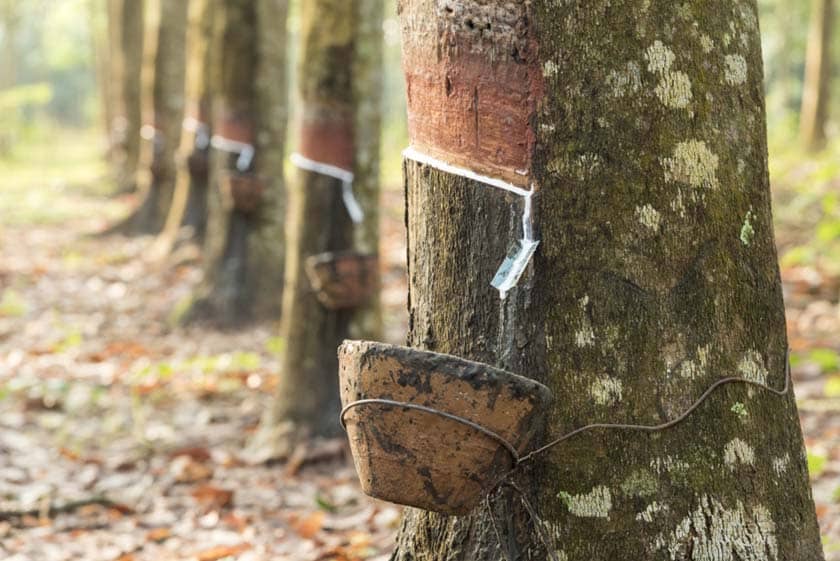
Serious Health Concerns
More often than is acknowledged, the contamination from harmful chemicals used in mining such as mercury and sodium cyanide, seeps deep into the soil reaching underground aquifers that supply water to neighboring communities. The health consequences are detrimental and can lead to severe health issues including, but not limited to, cancer and eventual death.
Sodium Cyanide solution is commonly used to extract gold from ore. There are two methods used: heap leaching and vat leaching. With heap leaching, the cyanide solution is sprayed over huge leaps of crushed ore as it is spread out over giant collection pads dissolving the gold and absorbing it into the solution. The collection pad absorbs the solution that has captured the gold. This process is repeated until the ore has been completely stripped of gold. In vat (or tank) leaching, the ore and cyanide solution are mixed in large tanks. This typically is a more controlled method and spills are less common however, the waste product is stored behind large dams (tailing impoundments) which can and often fail catastrophically – contaminating the surrounding areas.
The mining industry claims cyanide is relatively safe because it breaks down rapidly in surface water. Unfortunately, the compound that cyanide breaks down into can be quite harmful. This compound finds its way into drinking water aquifers and can cause major health issues. Many residents living near mining sites have been forced to move away abandoning properties that were in their families for generations to avoid the health conditions related to mining contamination. As more and more areas are plundered, the long-lasting effects are devastating not only to the environment but to the people who live near these sites.
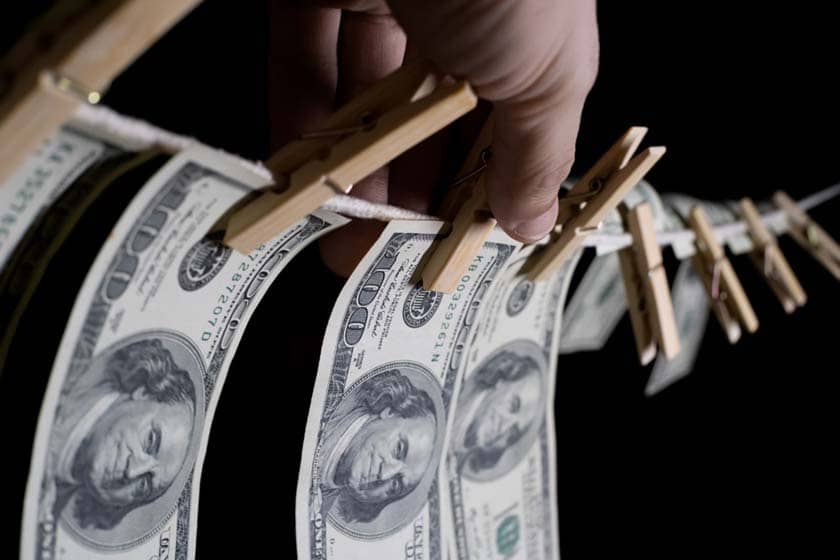
Criminal Activities & Financial Crimes
One of the biggest concerns when it comes to mines is directly tied to financial crimes. Money laundering has been a major issue with the trafficking of gold from mines in certain regions of Latin America as well as East and Central Africa. Illegally obtained gold is mixed in with legally mined gold by melting it together to mask its origin. Criminal networks such as drug cartels, terrorists and armed groups utilize this method of laundering to fund their illegal operations.
The exploitation of human labor in many regions also causes grave concern. In these regions, especially indigenous areas, children are often put to work in mines. The work day at a gold mine isn’t the 9-5 we’re used to here in the United States. Miners, including these enslaved children, often begin working before the sun rises and work full days and into the night to extract as much gold as possible each day. Though they are extracting a valuable mineral, the pay is negligible or at subsistence levels.
Solutions For The Jewelry Industry
Metals companies have begun adapting their processes to ensure the gold being sold to the jewelry industry comes from recycled gold. To ensure this is in fact happening, organizations such as the Scientific Certification Systems (SCS – Global) have launched programs to ensure that precious metals being supplied originate from recycled materials. Other companies, such as the Responsible Business Alliance (RBA), audit companies to certify the appropriate protocols are being followed to ensure manufacturers they are being supplied with responsibly sourced gold for their production. The RBA (formerly EICC), through their Responsible Minerals Initiative (RMI) conducts annual audits on suppliers from the metals industry to ensure responsible sourcing of various minerals in their supply chain.
Identifying suppliers that can ensure 100% recycled gold is paramount for companies that seek to claim their jewelry collections are made with responsibly sourced gold. But how can you know for sure the gold you are buying is in fact from recycled sources? Many refiners and metals companies continue to purchase and process mined gold. Though they are separating their production lines to help isolate the recycled gold from any mined gold, the risk of cross-contamination is always a real possibility.
Many of the jewelry industry giants have turned to metals suppliers that only process and refine jewelry scrap such as United Precious Metal Refining, Inc. (UPMR). Founded in 1988, UPMR has always declined to accept or process any mining materials at their facility in Alden, New York. UPMR has been assessed as a Conformant Gold Refiner by the Responsible Minerals Initiative and is in compliance with the RMAP (Responsible Minerals Assurance Program) as a “Conflict-Free” smelter in gold. Their policies ensure that all of the gold processed and refined at United comes from jewelry manufacturing byproducts and scrap gold jewelry from retailers and pawnshops allowing them to certify, with absolute certainty, that the gold they sell to jewelry manufacturers comes from Conflict-free sources. UPMR has also been certified by SCS Global that its fine gold and silver originate from 100% recycled sources.
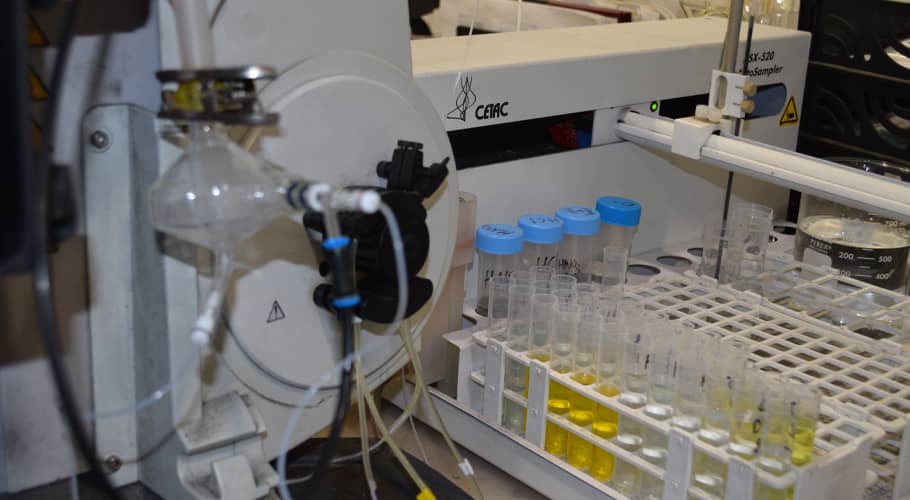
The Science
At United’s analytical laboratory, extensive testing is done to identify the elements in the gold samples from every lot ensuring no evidence of mining material is detected. Lead (Pb), Chrome (Cr), Iron (Fe), Mercury (Hg) and Arsenic (As) are often identified in mining materials and can be detected utilizing the standard X-ray Fluorescence (XRF) analysis. The benefit of the XRF analysis is its expediency in a rapid test that allows you to identify the minerals in the sample. Not every XRF machine is programmed to identify these elements as standards are needed to program these devices to properly function. The XRF machines at United’s lab are programmed with hundreds of standards to ensure accuracy in identifying the elements in the samples being analyzed.
Beryllium (Be) cannot be identified through X-ray but can be detected utilizing an ICP (Inductively Coupled Plasma) analysis. An ICP analysis is a destructive analytical method used to detect and measure elements in chemical samples to a parts-per-million level of accuracy. Extremely small traces of metals can be detected using this equipment. The process is based on the ionization of a sample by an extremely hot plasma, usually made from argon gas. It has the ability to identify many more elements in a sample than the standard XRF analysis.
United’s Commitment
Working with the SCS and the RBA/RMI, United has paved the way for this niche business model focused on recycling that works for the jewelry industry, ensuring responsible sourcing and 100% Recycled Gold. United’s unique operation caters to the jewelry industry offering Precious Metal Refining Services, a vast catalog of Jewelry Products, an impressive Research & Development Facility and Analytical Laboratory, and the highest level in Customer Service for jewelers and manufacturers alike.
The team at United consisting of executive management, customer account management professionals and compliance personnel work with customers on an ongoing basis to ensure they are conformant with the policies set forth by UPMR. Customers who send in melted materials from regions of the world identified as high risk or CAHRAs (Conflict Affected and High-Risk Areas) are required to document and photograph the jewelry scrap on a scale before melt as well as the bar on the scale after being melted. Video of the melting process is often requested to ensure compliance and to verify that the gold received does in fact come from jewelry sources and is not mixed with mining material.
Because United supplies metals to some of the industry’s largest manufacturers who are also conformant with responsible sourcing and environmental certifications and policies, UPMR is certified by numerous organizations such as:

Responsible Jewellery Council (RJC): Code of Practices
The RJC – COP provides the guidelines which define the criteria for the ethical, social, human rights, and environmental standards for responsible business practices throughout the jewelry supply chain. UPMR has held this certification since 2016. This certification indicates an assurance to our customers and business partners that we conduct our business in a responsible and ethical manner.
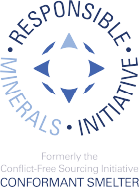
Responsible Minerals Initiative (RMI – RMAP)
The RMI defines the standard for smelters and precious metal refiners that participate in the RMAP (Responsible Minerals Assurance Program). The RMI conducts testing to their standard to warrant that UPMR conducts its due-diligence in accordance with internationally recognized frameworks, most notably, the OECD Minerals Due Diligence Guidance for Responsible Supply Chains – Supplement on Gold (Annex II). UPMR has been determined to be a Conformant Gold Smelter – and is in compliance with the RMAP standards (or that of its predecessor, the EICC – GeSI) since 2014.
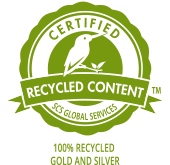
SCS: Global Services
SCS Global is a third-party certification, verification and validation service. UPMR’s fine gold and silver has been certified as being from 100% Recycled Sources. United has held this certification since 2012.
To learn more about United Precious Metal Refining, Inc. and their commitment to the environment, the jewelry industry and their promise to provide 100% Recycled Gold from jewelry scrap and manufacturing byproducts, call 1-800-999-FINE (3463).
